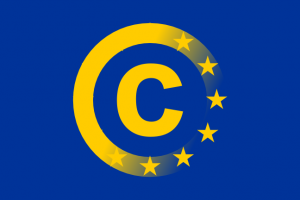EP Resolutie inzake thuiskopieheffing
Motion for a European Parliament Resolution, Final report on private copying levies 17 february 2014, (2013/2114(INI)) Thuiskopieheffing. Points out that the cultural sector provides 5 million jobs in the EU and 2.6 % of its GDP, is one of the main drivers of growth in Europe and a wellspring of new and non-relocatable jobs, stimulates innovation and offers an effective means of combating the current recession; Recalls that copyright law should balance the interests of, inter alia, creators and consumers; considers, in this connection, that all European consumers should have the right to make private copies of legally acquired content; Calls on the Commission, therefore, to present a legislative proposal to review Directive 2001/29/EC on the harmonisation of certain aspects of copyright and related rights in the information society, including a provision on the full harmonisation of exceptions and limitations, inter alia with regard to private copying.
Thuiskopieheffing. Points out that the cultural sector provides 5 million jobs in the EU and 2.6 % of its GDP, is one of the main drivers of growth in Europe and a wellspring of new and non-relocatable jobs, stimulates innovation and offers an effective means of combating the current recession; Recalls that copyright law should balance the interests of, inter alia, creators and consumers; considers, in this connection, that all European consumers should have the right to make private copies of legally acquired content; Calls on the Commission, therefore, to present a legislative proposal to review Directive 2001/29/EC on the harmonisation of certain aspects of copyright and related rights in the information society, including a provision on the full harmonisation of exceptions and limitations, inter alia with regard to private copying.
A virtuous system in need of modernisation and harmonisation (1 - 8)
8. Invites the Member States and the Commission to conduct a study on the essential elements of private copying, in particular a common definition, the concept of ‘fair compensation’ – which at present is not explicitly regulated by Directive 2001/29/EC – and the concept of ‘harm’ to an author resulting from unauthorised reproduction of a rightholder’s work for private use; calls on the Commission to look for common ground as regards which products should be subject to the levy and to establish common criteria for the negotiating arrangement for the rates applicable to private copying, with a view to enforcing a system that is transparent, equitable and uniform for consumers and creators;
Single collection procedure, clearer consumer information and more efficient reimbursement procedures (9 - 19)
18. Urges the Member States to adopt transparent exemption rules for professional uses in order to ensure that they are exempt, including in practice, from private copy levies in compliance with the case law of the Court of Justice;
19. Calls on the Member States to ensure that private copy levies never have to be paid where the media in question are used for professional purposes, and that various arrangements for the reimbursement of levies paid for professional users are replaced with systems which guarantee that these users are not liable to pay the levy in the first place;
Transparency regarding allocation of revenue (20 - 24)
23. Calls on the Member States to publish reports on the allocation of proceeds in open source format with interpretable data;
24. Urges the organisers of cultural events and performances receiving funding from private copying levies to make their target audience more aware of this by means of additional publicity;
Technical protection measures (25 - 27)
25. Points out that the private copying exemption gives citizens the right to copy freely their musical and audio-visual material from one medium or type of multimedia material to another without the need to seek the authorisation of rightholders, provided that this is for private use;
Licences (28 - 29)
29. Stresses that private copying exception arrangements should apply to certain online services, including certain cloud computing services;
New business models in the digital environment
30. Calls on the Commission to assess the impact on the private copying system of the use of cloud computing technology for the private recording and storage of protected works, so as to determine whether these private copies of protected works should be taken into account by the private copying compensation mechanisms and, if so, how this should be done;
31. Instructs its President to forward this resolution to the Council and the Commission, and to the governments and parliaments of the Member States.
Lees hier het rapport:
17 february 2014, (2013/2114(INI)) (pdf)
17 february 2014, (2013/2114(INI)) (link)





















































































